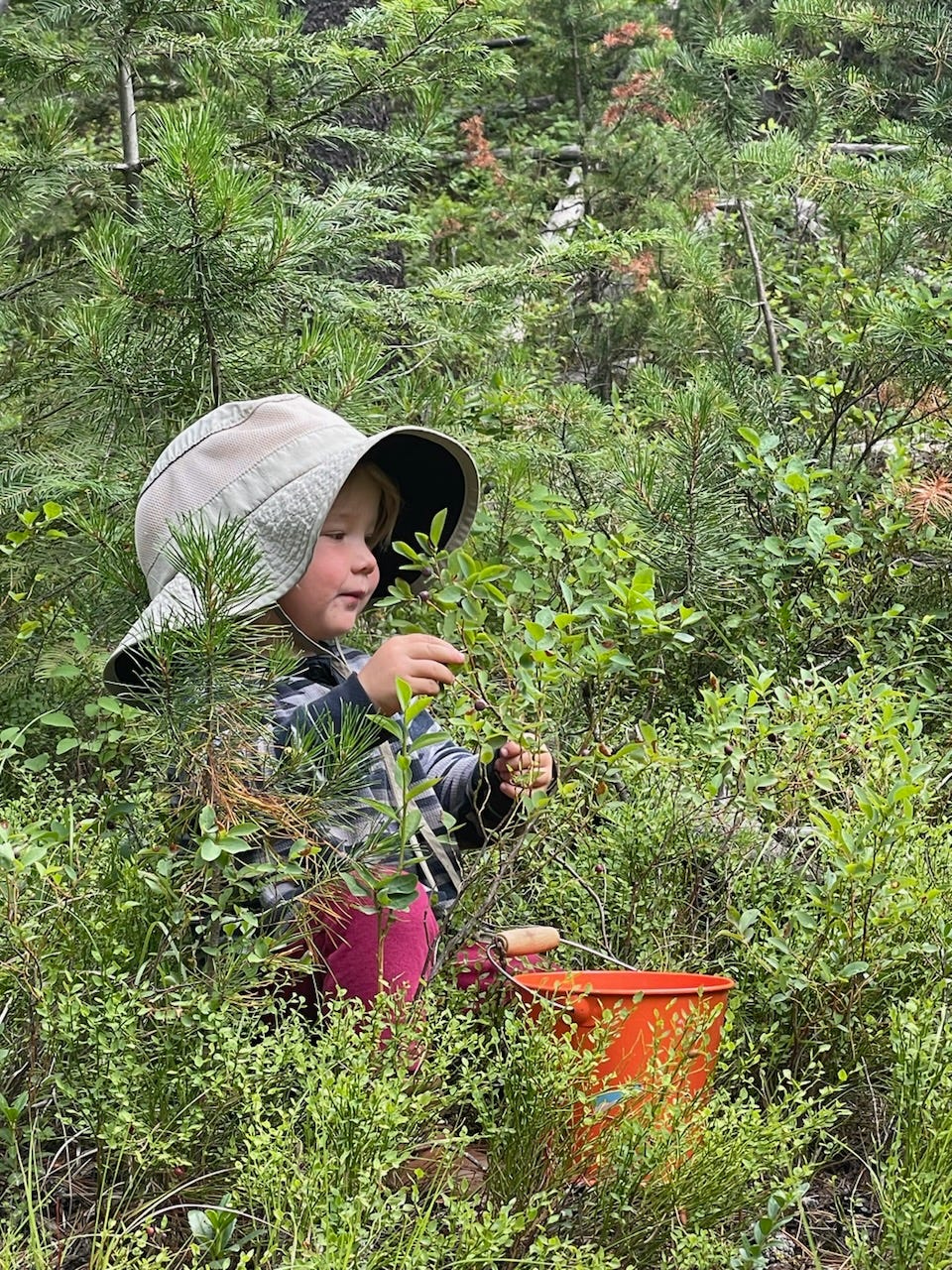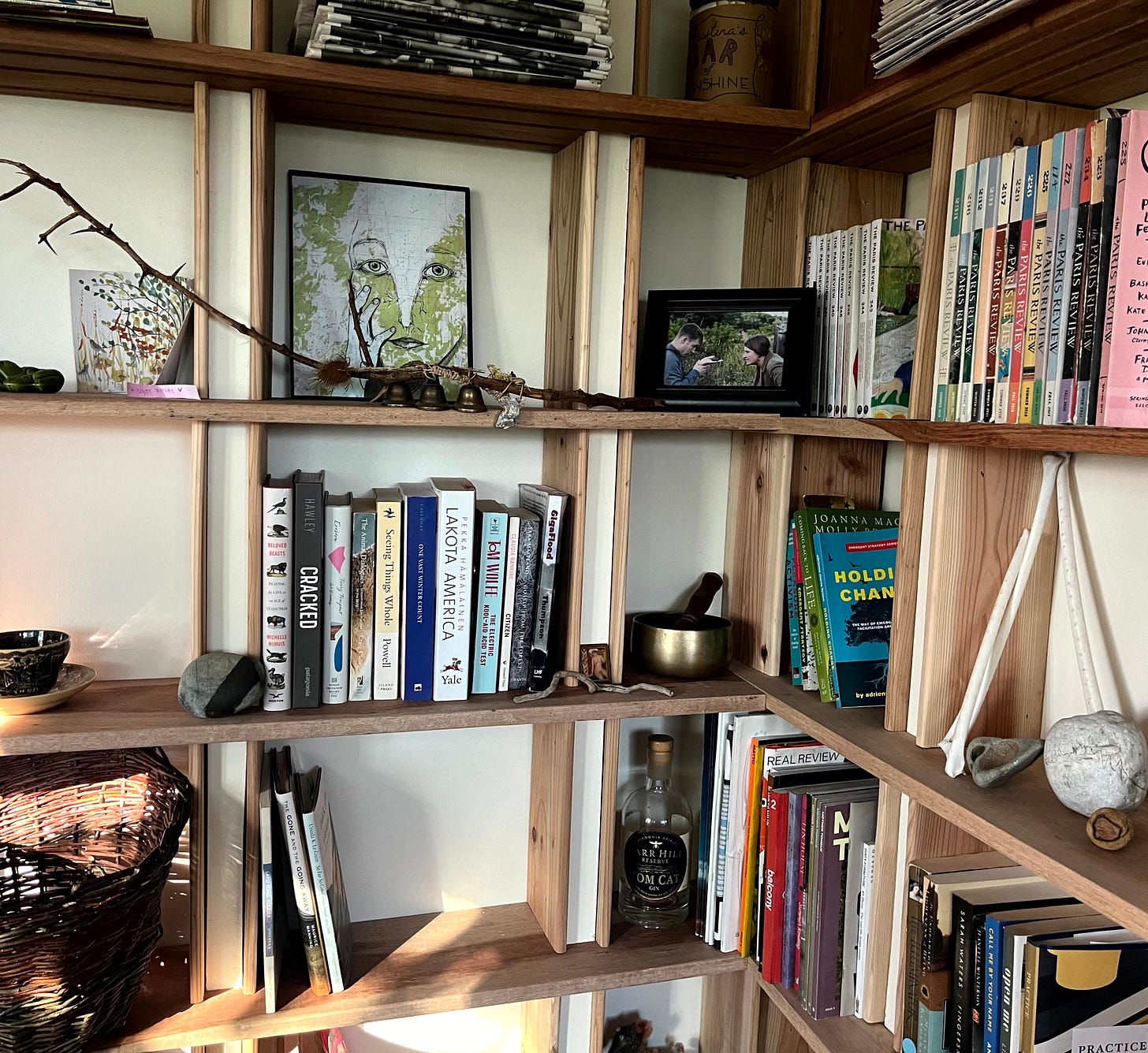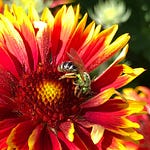Today, August First, is Lúnasa, the Gaelic festival day that marks the beginning of the harvest season. It’s about halfway between the summer solstice, when things really get going, and the autumn equinox, when things begin to senesce and fall asleep.
In our neck of the woods, the huckleberries are on. Each new berry that comes on is my son’s new favorite berry. Native bees and honey bees are tugging pollen out of our sunflowers and wiggling in the borage. We just ate our first tomato. And we’re starting to get down to the serious business of pickling, fermenting, dehydrating, winemaking, and so on, so we can continue to enjoy the abundance of summer during our very long cold season.

Our gardening and foraging weave us into closer alignment with the rhythms and co-inhabitants of our home place—our little third-of-an-acre, our valley and mountains and waterways, our bioregion. All of my work in the world—the embodied work in the garden, the inquiring and listening work of the podcast, the work of parenting, the work of prayer—emerges from this weaving. It’s a kinward choreography, or that’s the intention, anyway, always.
And I’m a writer, too, by the way.
Some of you know that Kinward Podcast has a companion project: a fantasy novel co-created with an intimidating collaborator: the Big River—Nchi Wana, the Columbia—and their basin, our bioregional watershed. In the novel, the elaborate ecologies of this place wake up. They wake up hungry. And what do they want?
Us.
Us—back in alignment with how the world actually works. Us—as waters and ecosystems and bodies (instead of consumers, individuals, and cogs). Us, singing and playing, praying, exploring the niches that open in times of great change. Us, giving ourselves back to the world.
If you’ve been listening to the podcast, you probably know by now that I think this is what is actually happening. I feel the world constantly calling—sometimes playfully, sometimes angrily—for us to remember that we belong to our places, to our planet, to the others who share our world—not the other way around.
Kinward Podcast is a platform for exploring our many ways of answering that call. It’s a way for me to “learn in public” with the many, many people I’m learning from. You could say the podcast is research for the novel, but of course it’s much more than that: it’s alive.
Writing and conversation are both important modes of synthesis for me. I thought it might be fun for you all, too, to occasionally get a taste of this other way of exploring and entangling with the stories of this wild, wild moment we’re in, in this wild world.
So, in the spirit of harvest, today I’m sharing a story, a fairy tale, which may or may not end up in the novel, but which splashes through many of the themes we’ve been exploring on the podcast: water and what water wants, communication beyond the human, the apocalypse, embeddedness in place, and embodied transformation—with a witch and some magical froglets, to boot.
I’d really love to know how this very different kind of episode lands for you! Please leave a comment or message me here on Substack, or DM me on Instagram @Kinward_Moves.
If you’d like to read the full text of this story, you can find it under the new Imaginarium tab on the Kinward Moves home page. Most of the posts in the Imaginarium will be behind a paywall—also an experiment; it may or may not stay that way. I plan to post occasional excerpts of the novel there, as well as poems, stories, and reflections on the ambitious craft of trying to co-author with Life.
Thanks so much to all of you for listening to this episode and letting me know what you think! I’m also feeling grateful to the little frog and the dragonflies who are letting us know our pond’s all right, to the mountains for the huckleberries, and to the garden for all the pollen and the first ripe tomato.
Happy harvest season, friends.














Share this post